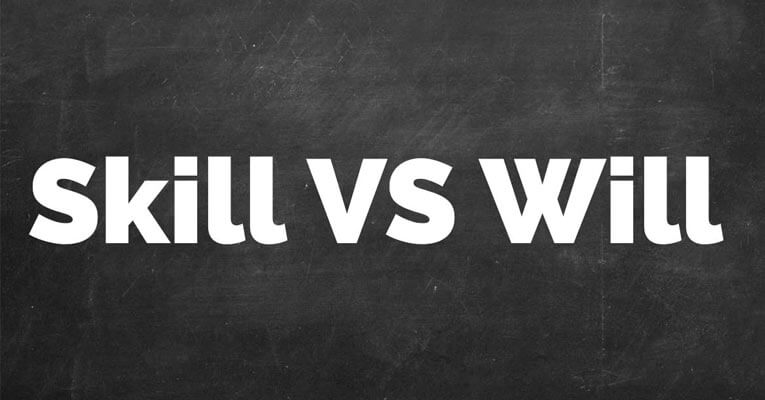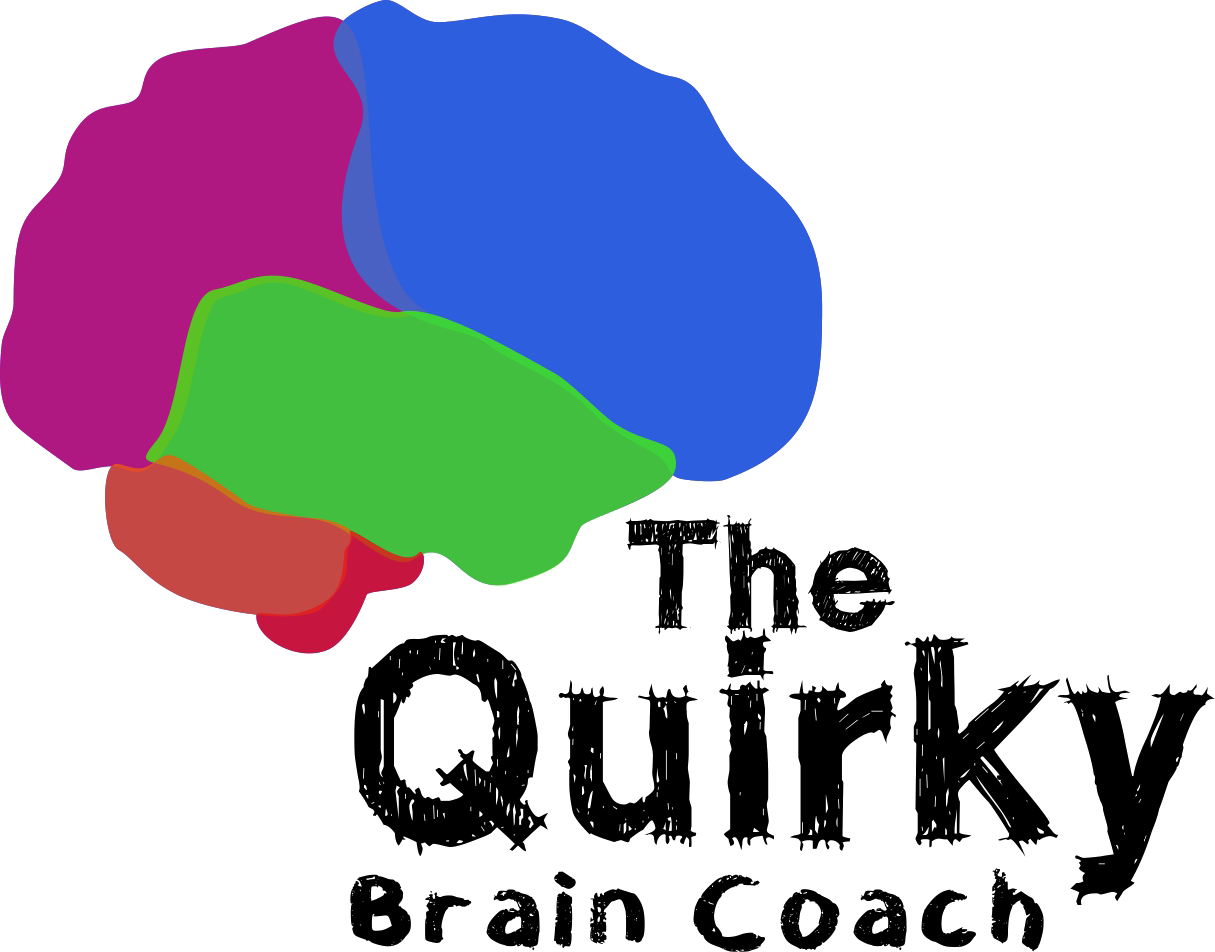Do you procrastinate?
Do you ever set yourself a clear intention or a goal for the day and then, as you get into bed at the end of the day, remember that you didn’t actually do the thing you genuinely hoped to do?
I know that I do, sometimes. (Although it happens way less than it used to, thanks to some of the things I’ll share in this post!)
This post is mainly about procrastination and how you can reflect and coach yourself to help with this…but I want to start off by sharing two useful pieces of knowledge about why the act of setting a goal or intention can play a role in you being less likely to do it IN THE FIRST PLACE.
Two useful pieces of knowledge to reflect on…
First of all, many ADHD or autistic adults experience demand avoidance, which can be thought of as a rejection or avoidance of any requests made of you. What many people aren’t aware of is that this can also include demands that you make of yourself i.e. setting a goal or an intention to work towards a particular outcome.
Demand avoidance is poorly understood but one thing the literature is consistently clear on is that it is linked with anxiety. In this post on procrastination, I will be talking about anxiety more anyway.
However, if you consider that you experience demand avoidance for things that you ask of yourself, then my invitation is to really consider if and how you can reduce your anxiety levels around the outcomes you’d like to have.

Another thing to pay attention to is the fact that, for many of us, actually coming up with a goal and setting up a plan to achieve it is so interesting and rewarding in the moment that, once you’ve done that, you almost feel as if you have done the task, when you haven’t. Do you relate to this?
Because of this, it can be helpful to consider how you’ll keep yourself pumped up and focused once you’ve had the initial reward of deciding the outcome and making a plan.
To help you get the outcomes you want, it is often still smart to get clear on the desired outcome and how to achieve it BUT we need an extra layer of thought here often to keep us motivated and taking action. Ask yourself: how do you make the execution of the plan and the journey towards the goal as interesting and exciting as the actual planning? What will give you a buzz and some enjoyment along the way? What will help you stay focused on and interested in executing the plan that you have made rather than just stopping?
For me, I know that fast, energetic music often helps me to get things done, and so listening to music while I execute a plan puts me in a good mood and gives my grey matter a squirt of the brain chemicals I need to keep enthusiasm and interest high enough to get to where I want to go.

The invitation here is to think about what you could do to keep yourself buzzing and enthused so that you might just execute on your plan.
Let’s think now about procrastination and how you can approach it, should you choose to…
What is procrastination?
Procrastination is not doing something to obtain short-term relief from present unpleasant emotions about a task OR to avoid unpleasant emotions that you believe you are sure to experience IF you engage with the task.

For example, I hate invoicing with a passion. I know that it’s fiddly, it takes time, and it is boring. And I HATE being bored. As such, I believe that my invoicing will be unpleasant for me, and so I can experience a temptation to put this off because I think I’ll be bored. Therefore, invoicing is an activity that I can be tempted to procrastinate on, even though it will help me to be paid – something that you’d expect would be motivating. But this goes to show that procrastination is about short-term relief or avoidance of something in the near future that you don’t want to experience! I am so keen to not feel bored, that I will avoid this over and above the big benefit of being paid!
The latest research on procrastination tells us that it’s not a problem of time-management and that time-management solutions for procrastination offer no or limited benefit for dealing with this challenge.
The research also tells us that procrastination can often be helped by an increase in clarity and a reduction in emotions like anxiety or fear. I have a protocol that I use with myself and with my coaching clients and which I will share with you now…
Protocol for clarity and reducing task anxiety: skill/will check-in
Would you agree with this statement below?
We do what we know we have a chance of doing and what we believe we will enjoy doing.
To see what you think here, consider things that you don’t procrastinate on.
I never procrastinate on my morning coffee, dog cuddle and journalling session. Why? Because I can do it. I have a track record of doing it. I know how to do it. I understand the process and the steps and the small amount of time this investment takes.
I also enjoy my daily morning journalling. It has become a comforting, enjoyable and calming ritual that helps me to reduce my anxiety for the day. As a result, I know I can probably do my journalling every day, and I know I will enjoy it. (Note, also, that I am not at all experiencing any anxiety or fear about journalling!)
In other words, I have the skill and the will to journal daily, and so I do it 9+ times out of 10. (It really is rare that I miss a day now…I have to be very unwell indeed for it not to happen, which is fair enough!)
I invite you here to think of a hobby or a habit that you do mostly engage with, and see if the same applies!

What is “skill” all about? Skill can refer to the actual ability or knowledge to be able to do something. So, for example, I can do my invoicing when I have all the figures to hand and correct templates to fill out quickly. In addition to knowledge, I would say that skill is also about having any resources, external support, and memories of past success that you can draw on to help you combat procrastination.
Will is usually considered to be about motivation, but I think there’s more to it than that. For me, will is about all emotions. So, if you experience lots of negative emotions about a task, then will is generally lower. A lack of confidence is a common emotional state that effects will levels to execute on something. Will is also about fear or anxiety, which have both been mentioned above. Therefore, one way to increase your will levels is to look at if and how you can reduce or at least process and accept some of the less helpful emotions you may feel about a task.
Unsurprisingly, will is also about increasing the opportunity for positive emotions through or as a result of executing on a task. As I said above, my daily journalling has become an enjoyable ritual. I do it in bed, cuddling my dog, with my heater on, while drinking a nice coffee. I feel focused and like I have a chance to influence my day. As a result, I feel calm, happy and more positive. This sets up a positive feedback loop that reinforces my journalling habit.
If there is something that you want to do or achieve BUT you are consistently not following through, then it is possible that you have what we’d call in coaching “blockers and barriers” about either skill or will, or a bit of both.
The trick for procrastination is to identify blockers and barriers for skill and will, and deal with them so that there are fewer practical and psychological obstacles to getting started on your plan for your outcome.
Below, I am going to offer you some reflection questions that you can adopt or adapt if you choose to see where you’re at with skill and will on something you’re procrastinating on.
Journalling, talking to a trusted neurodivergent friend, or working with a coach, therapist or peer support group can help you to move through the reflection questions by externalising your thinking – this is especially important for many ADHDers or people who experience alexithymia (difficulty connecting with emotions).
Reflection questions for a skill/will check-in
Consider grabbing a journal or starting a voice recording to capture your responses…

Skill questions
- What exactly is it that I am aiming for? What is the desired outcome? What are the conditions for success or completion?
- What are the steps on the journey? What needs to happen in what order?
- When would I like to have achieved this outcome by? Why? How will I keep sight of time passing or know when the self-set deadline is coming up? What reminders or prompts might I need and which could actually work?
- If you know or can guess or ask others, how long will each step take? (Sometimes we procrastinate on things that we think will take longer than they actually will!)
- Do I know how to do this thing? If I do not, what do I need to enquire about, learn about. arrange or delegate to give me the knowledge or support I need to be able to execute on this task?
- What tool can I use to mark off progress and/or keep an eye on the steps I am completing towards the desired outcome? (I use a little to-do list full of the tiniest steps that move me towards my intended task, and tick off and celebrate every single step I complete so I can see what I am achieving. What would help you here?)
My strong advice is to also ask yourself: do I now have sufficient clarity on what to do and how to do it before getting started. Not knowing what to do or how is a big “blocker and barrier” when it comes to procrastination.
Will questions
- What is the unpleasant emotion that I don’t want to feel now or in the near future, linked to this task? Why do I feel like that?
- What can I do to reduce or process and accept the unpleasant emotions I am seeking to avoid through procrastination?
- Do I feel anxious about this task? Why? And is there anything on the skill side of things that would help me to reduce this anxiety?
- If I feel anxious, what can I do to reduce my anxiety and calm myself?
- What positive emotions would I like to experience instead? What nice feelings would I like to wrap around the task to make it more motivating and pleasant for me to engage with? How could I create this easily? (Enviromental and sensory tweaks can give you an easy win here e.g. music, coffee, a dog cuddle, keeping warm.)
- Once this task has been done, how will I feel? What are the benefits of successfully completing this task? How will I and my personal world be improved as a result? (This is important for whipping up some motivation!)
- Is there anything I could do for myself at the end of the task to reward myself or boost myself so that this memory of successfully engaging with the task gets locked in and helps me to do what I need again in the future? (Celebration and logging/sharing success is a powerful tool, here!)
Ways to reduce anxiety around a task
I’ve mentioned a few times that anxiety and the avoidance of anxiety plays a big role in procrastination.
If we’ve experienced lots of perceived failures, have issues with perfectionism, or don’t trust ourselves to be able to be successful, then it’s really understandable that anxiety comes up at times.
Anxiety is an emotion linked with worry, rumination, and concern about something in the future. It not only has mental implications, but also can cause changes in your body such as sweating, tension and increased heart rate.
To help with anxiety, it can be useful to see if there is anything you can do to calm your nervous system in advance of attempting to do a task.
One of the easiest ways to calm your nervous system is to breathe deeply. This is a feature of the human nervous system. Big, calming breaths help us to lower our heart rate and get tension out of our body. Make sure you only go for this option if it feels safe and comfortable to you, though. When we have had trauma or cPTSD, for example, some types of breathing exercise feel uncomfortable so consider if and how you would do this, if at all, so it’s a positive and calming experience for you.
If breathing isn’t effective or comfortable for you, doing sensory activities that soothe you is another option. I have been known to lie under my weighted blanket, fussing a cat until I feel calm enough to start my invoicing. Reflect on what safe and soothing sensory activities you could use instead of breathing.

Finally, journalling about what you’ll do and how can also be calming because it gives you a sense of autonomy, confidence and structure around the task, making it less daunting and, therefore, lowering anxiety.
Summary
In this post, I’ve written about
- factors that can lead us to procrastinate
- what procrastination is
- how to target procrastination by reflecting on skill level and will levels
- reflection questions you can ask yourself to help you identify why you’re procrastinating and make any tweaks you need to remove blocks and barriers to tasks
- how to reduce general task anxiety through deep breathing, sensory soothing or journalling
Your next steps
Dealing with procrastination is a skill and involves self-awareness, both of which require active development over time.
If you have a journalling practice or are motivated and enthused enough to start one up and see if you can maintain it, I highly recommend regular reflective journalling to keep an eye on if and why you are putting things off. Just gathering intelligence about yourself can be enough to start motivating you subconsciously to get into tasks when you’d like to.
If you’ve been procrastinating for years and feel it would be hard for you to tackle alone, then it can be useful to work with a therapist, coach or peer support group to keep this development area alive in your attention and intention.
As you hopefully can see from this post, I have extensive personal and research experience with procrastination and have protocols and tools for helping you understand and work around your procrastination. If you’d like a programme of bespoke, personalised, accessible and compassionate coaching to help you work through everything mentioned in this post, contact me to set up a consult and get your name onto my waiting list.
From personal experience, I can tell you that most people are able to make some progress on procrastination. It might take a while but most people do become better at dealing with it, and noticeably so in a few months. You can afford to be optimistic that things will be different in time.
